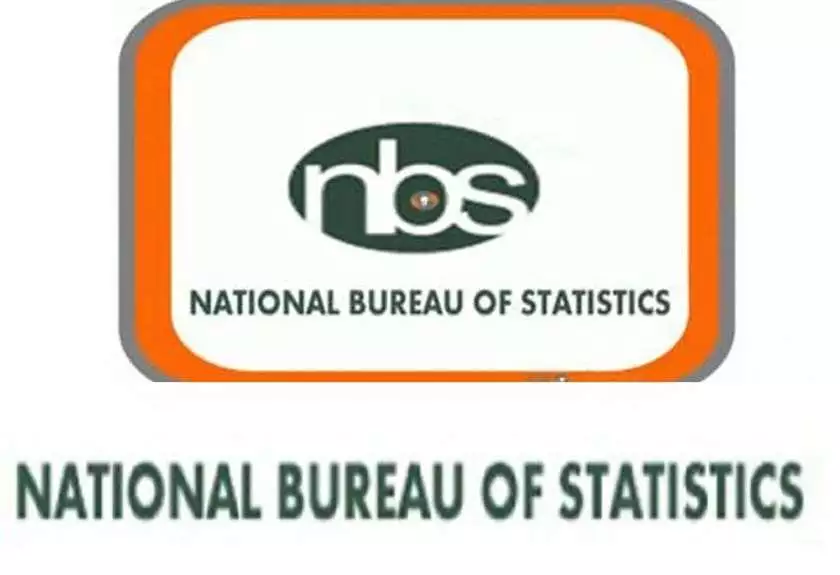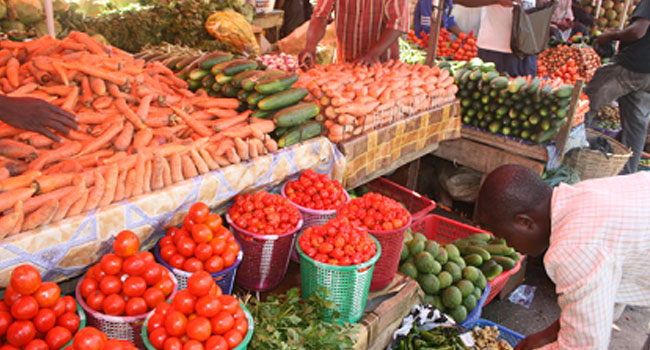High food prices have been linked to increasing inflation in Nigeria. This piece of information was given in the reports released by the National Bureau of Statistics (NBS) and the Lagos Chamber of Commerce and Industry (LCCI). In the analysis, Nigeria’s inflation rate surged to 27.33 per cent in October, the NBS disclosed. This is a 0.61 percentage point from the 26.72 per cent that was recorded in September. In its Consumer Price Index (October 2023) that was released, the NBS stated, “In October 2023, the headline inflation rate increased to 27.33 per cent relative to the September 2023 headline inflation rate, which was 26.72 per cent.

“Looking at the movement, the October 2023 headline inflation rate showed an increase of 0.61 percentage points when compared to the September 2023 headline inflation rate. Furthermore, on a year-on-year basis, the headline inflation rate was 6.24 percentage points higher compared to the rate recorded in October 2022, which was (21.09 per cent). This shows that the headline inflation rate (year-on-year basis) increased in October 2023 when compared to the same month in the preceding year (October 2022)”, the NBS said. Major contributors to the increase in inflation were food and non-alcoholic beverages, housing, water, electricity gas and other fuel, clothing and footwear, transport, and furnishings and household equipment and maintenance. The continued rise in inflation has been attributed to the removal of petrol subsidies and the devaluation of the official exchange rate, it added.
Nigeria’s inflation continues its upward trend, rising to 27.33% in October from 26.72% in the previous month as released by the NBS. This represents 0.61% points increase, reflecting higher food and fuel prices and the consistent depreciation of the Naira. The annual consumer price inflation soared by 6.24% points when compared to 21.09 recorded in the corresponding month in 2022. On a monthly basis, consumer prices rose by 1.73% in October, following a 2.1% surge in the prior month.
The LCCI also revealed that food inflation rate increased to 31.52% in the month, implying 0.88% points increase from 30.64% in the previous month and 7.80% points increase compared to 23.72% points in the corresponding month in 2022. Similarly, core inflation increased to 22.58%, indicating 0.73% point and 5.12% points increase when compared to 21.84% and 17.46% in September 2023 and October 2022, respectively. In terms of contributions of items, the data revealed that food and non-alcoholic beverages contributed the highest to the price increase at 14.16% followed by housing water, electricity, gas and other fuel (4.57%), clothing and footwear (2.09%), transport (1.78%) and furnishings & household equipment & maintenance (1.37%).

The Director-General of LCCI, Dr. Chinyere Almona observed that following 10 consecutive months of acceleration, the battle against inflation must be intensified by the Central Bank of Nigeria (CBN), and maintained that it is concerned about the continued uptick in inflation (year-on-year), and particularly notes that it squeezes consumers’ spending and saving, as well as constrain manufacturing productivity by anticipating economic agents in deploying strategies that would mitigate inflationary pressures.



